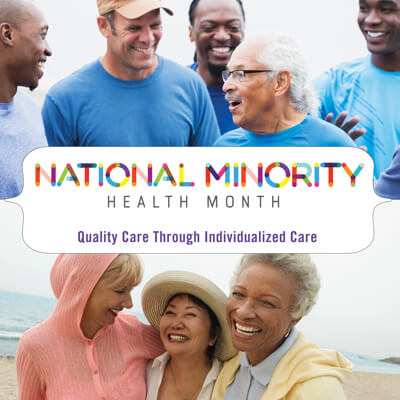African American Women’s Hair Care: Overcoming This Barrier to Exercise
Mar 31, 2020, 11:55 AM
 by Constance Brown-Riggs, MSEd, RD, CDCES, CDN
by Constance Brown-Riggs, MSEd, RD, CDCES, CDN
Have you ever given tips to your African American female patients or clients on hair care and maintenance during physical activity? There is a good chance you haven’t, unless of course, you happen to be a diabetes care and education specialist of color.
In a recent survey of healthcare providers, the majority reported engaging in discussions with African American female patients regarding physical activity. However, 76% of the providers never included a hairstyling or maintenance assessment in their discussion, and only 34% were comfortable discussing this topic. Moreover, the clinicians didn’t believe hair care and maintenance was a significant barrier to exercise. Yet, African American women often report “sweating out my hairstyle” as a barrier to exercise. Also, if the topic was discussed, many African American women did not feel as though their health care provider understood African American hair.
If diabetes care and education specialists are to address the hair care barrier that exists among African American females, there must be a baseline knowledge of the hair care and maintenance barriers. Most of all, diabetes care and education specialist must also be comfortable engaging in cross-cultural conversations.
Styling African American hair can be tedious, time-consuming, and costly. Many hairstyles can be maintained without washing for one to two weeks. However, exercise and sweating hair out would require more time and money to restyle the hair.
To gain a greater appreciation of the process and time it takes for many African American hairstyles, I encourage you to view a couple of YouTube videos on African American hairstyles. Most hairstyles will fall into two categories; relaxed or natural. All African American hair is naturally curly—some curlier than others. Relaxed hair is treated with a chemical to make the hair easier to straighten and manage. The hair care for relaxed and natural hair is different. Therefore, you should search for “Natural African American/Black Hairstyles” and “Relaxed African American/Black Hairstyles.” You can also search each category for workout hairstyles.
Here are a few suggestions to help your clients preserve their hairstyle while exercising:
- Try a protective hairstyle, such as braids, cornrows, twists, buns or extensions, and leave it in until ready to wash hair.
- Reduce contact with sweat by keeping hair off the face and neck with a ponytail or pineapple for curly hair. A pineapple is done by loosely securing curly hair on the top of the head. A dreadlock tube or scarf is a great way to secure a pineapple.
- Schedule workouts on a day you plan to restyle your hair.
- Exercise in cooler environments to prevent sweat and frizzing.
- If the hair is relaxed, complete low-intensity workouts after wash day and save sweaty high-intensity workouts, until a few days before wash day.
You don’t have to know everything about African American hair care and maintenance. However, expressing empathy and understanding will open the door for informative cross-cultural conversations.
Author Bio

Constance – President and Owner of CBR Nutrition Enterprises is the author of the newly released Diabetes Guide to Enjoying Foods of the Worldpublished by the Academy of Nutrition and Dietetics; The African American Guide to Living Well With Diabetes, which received the Favorably Reviewed designation from the Association of Diabetes Care & Education Specialists; and Eating Soulfully and Healthfully with Diabetes. Constance was elected chair-elect of the Academy of Nutrition and Dietetics Diabetes Care and Education Practice Group (2018 – 2019), and she is a former member of the board of directors for the Association of Diabetes Care & Education Specialists.
Adiabetes care and education specialist Perspectives on Diabetes Care
The Association of Diabetes Care & Education Specialists Perspectives on Diabetes Care covers diabetes, prediabetes and other cardiometabolic conditions. Not all views expressed reflect the official position of the Association of Diabetes Care & Education Specialists.
Copyright is owned or held by the Association of Diabetes Care & Education Specialists and all rights are reserved. Permission is granted, at no cost and without need for further request, to link to, quote, excerpt or reprint from these stories in any medium as long as no text is altered, and proper attribution is made to the Association of Diabetes Care & Education Specialists.
HEALTHCARE DISCLAIMER: This site and its services do not constitute the practice of medical advice, diagnosis or treatment. Always talk to your diabetes care and education specialist or healthcare provider for diagnosis and treatment, including your specific medical needs. If you have or suspect that you have a medical problem or condition, please contact a qualified health care professional immediately. To find a diabetes care and education specialist near you, visit DiabetesEducator.org/Find.